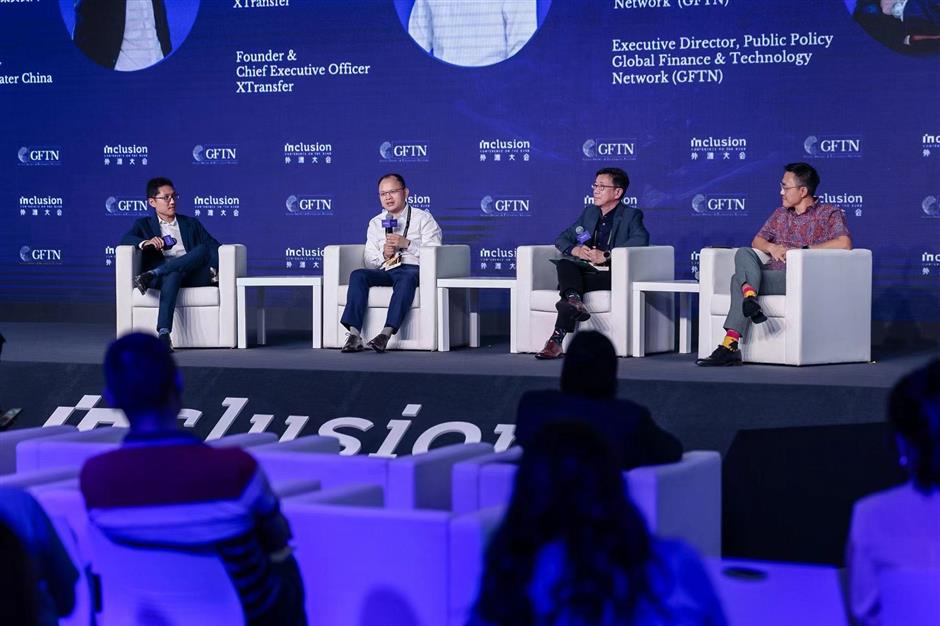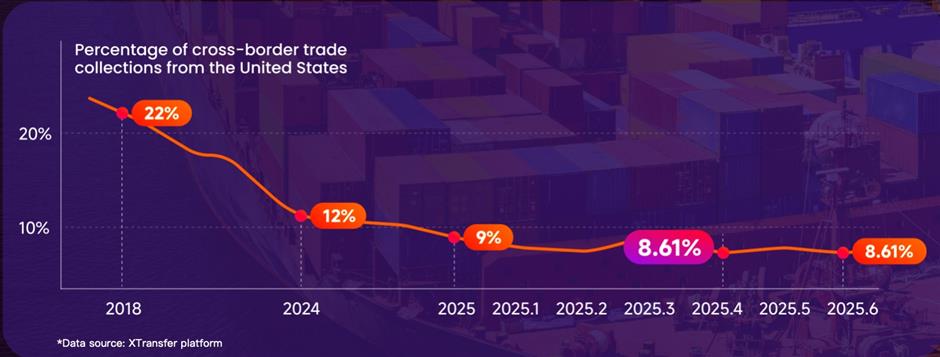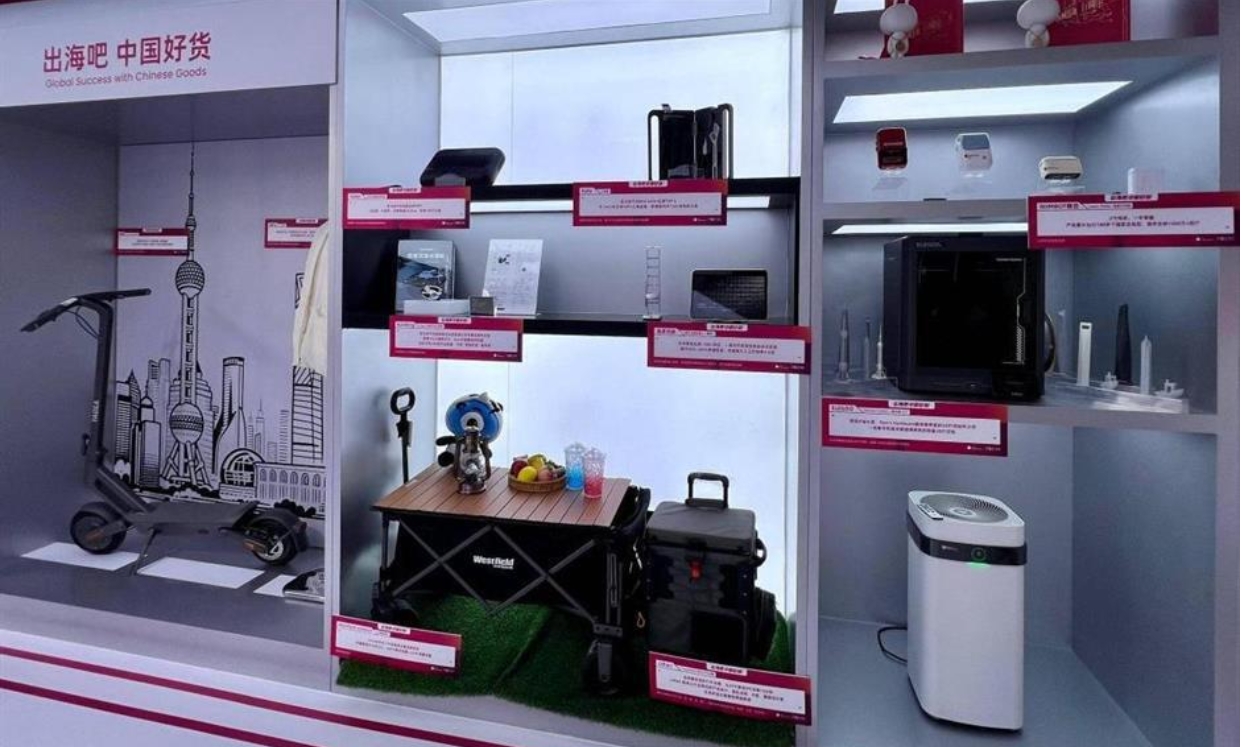政府新闻
随着中国与发展中国家联系的加强,跨境贸易蓬勃发展 2025-09-16

A FinTech panel discussion during the Inclusion event brought together executives from the Singapore-based Global Finance & Technology Network, HSBC, Stripe and XTransfer.
China's cross-border trade is expanding rapidly, driven by an increase in business with emerging countries and the adoption of new technologies, including AI and blockchain, which enhance transaction efficiency and security, according to speakers at a fintech event.
Executives from the Singapore-based Global Finance & Technology Network (GFTN), HSBC, Stripe, a US-based fintech company, and Shanghai-based cross-border payment platform XTransfer participated in the Inclusion event.
New Markets, New Opportunities
XTransfer CEO Bill Deng anticipates that the company's transaction volume will increase tenfold within the next five years, referring to this growth as a "mobile payment revolution." Currently, XTransfer serves over 700,000 clients, with 47 percent being international businesses.

XTransfer data shows Chinese exporters are reducing their reliance on the US market from 22 percent in 2018 to 9 percent in 2025.
XTransfer's index demonstrates that cross-border payments for SMEs are growing and showing a strategy shift toward emerging economies. The compilation also shows Chinese exporters are lowering their reliance on the US market, with transactions with US purchasers falling from 22 percent in 2018 to 9 percent in 2025.
Southeast Asia is now the top source at 24 percent. The company is expanding to Mexico, Brazil, Ghana, and Egypt due to increased demand from new Latin American and African markets.
According to a McKinsey analysis published in Inclusion, Asia is the most dynamic region for global commerce. Sopnendu Mohanty, CEO of Global Finance & Technology Network (GFTN), stated Asian markets are large and fast-paced, creating a culture open to new technology. Many conventional industry leaders are aggressively exploring digital transformation.
High-tech Chinese exports, including "New Three" lithium batteries, NEVs, solar cells, car parts, and consumer electronics, are driving this rise.

High-tech Chinese export products, including consumer electronics, were on display at the Inclusion event in Shanghai.
Technology as a Solution
Trade growth has underlined the need for technical solutions to long-standing difficulties, especially for SMBs. Many small firms have used "underground banks," which have minimal costs but substantial dangers like fund freezing owing to AML issues. Traditional banks frequently deem minor transactions excessively expensive.
The GFTN noted that regulators prioritize financial inclusion and security to protect consumers and foster innovation.
XTransfer created X-Net, an industry standard to improve financial flow and AML risk mitigation. The startup plans to add stablecoins to its platform to lessen exchange rate fluctuation and speed up payments.
In the next two or three years, XTransfer's Deng projected stablecoins based on blockchain technologies to account for 20-30 percent of transactions.
Chinese authorities, who have been testing stablecoin systems in Hong Kong, support it.
XTransfer's AI-powered risk control system has become more efficient, with the "Non-intrusive transaction review" rate increasing from 96 percent to 99 percent.
Source: Shanghai Daily
